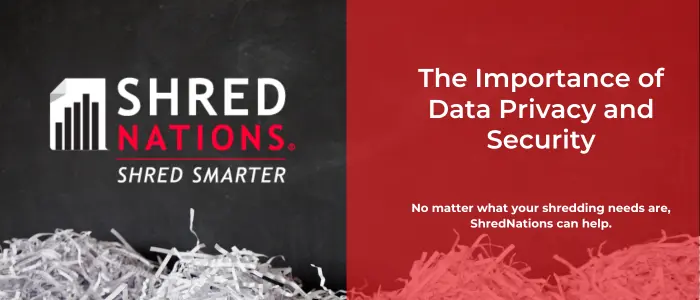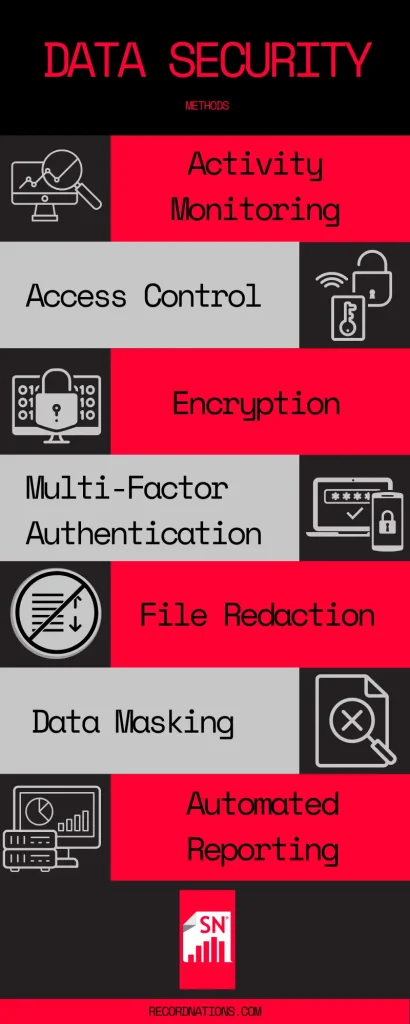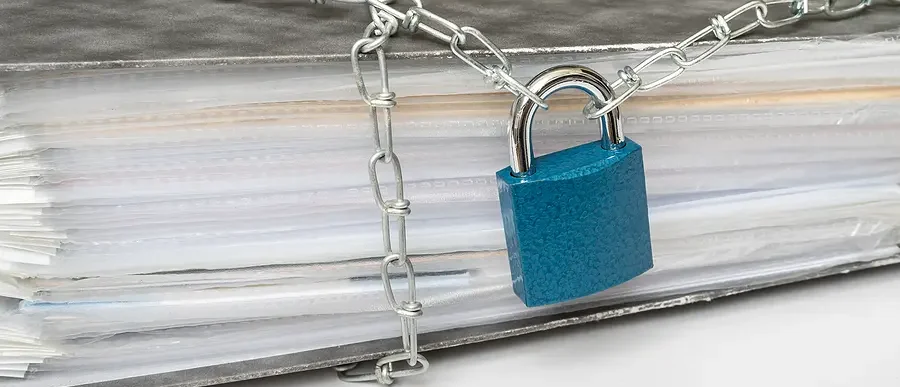
When you think about data privacy, data security often comes to mind as well. The terms are often connected and used interchangeably. While each concept is similar, they do differ. Understanding both terms will help your organization maintain safe data policies and prevent cyberattacks and information leaks.
What is Data Privacy?
Data privacy refers to the use and handling of personal information. Businesses are legally obligated to handle customer data ethically while giving individuals the option to limit access to their personal information. Regulations and laws address data privacy in each state and may vary by what is required and how they are enforced. Regardless, maintaining data privacy requires data security.
What is Data Security?

Data security refers to the protection of personal data. Protection must be put in place for each step of the data lifecycle, from creation to storage, throughout use, and until destruction is complete. Security may be required for physical storage, software applications, online networks, and more.
A data security policy addresses internal and external threats and puts security solutions into place to protect your data. Data security measures should cover people, processes, and technological solutions.
Common data security methods include:
- Activity monitoring
- Access control
- Encryption
- Multi-factor authentication
- File redaction
- Data masking
- Automated reporting
Understanding the Difference
Data security is the measures, policies, and technologies implemented to protect personal data from threats. Data privacy is compliance with regulations surrounding how data is collected, shared, and used. To better understand the similarities and differences of each term, review the example below.
Begin by thinking of your home. Inside your home you are reading emails, talking on the phone, and writing down notes. Without a door, anyone could come right in or see what you are doing. By adding a door, you are preventing unwanted guests from entering, seeing, and hearing what you are doing. Adding a lock or camera doorbell would further avert unwelcome visitors.
In this example, you represent data processing. You are actively collecting, sharing, and using data with the consent of the data subject (yourself, in this case). The door represents data privacy, limiting access, but not entirely preventing entrance into your home. The lock and camera represent data security. They are security measures that deny accessibility to unauthorized individuals, protecting your privacy.
How do They Work Together?
Data security fulfills data privacy by reinforcing the door to protect your data. In other words, careful handling and customer permission (or simply closing the door to your home) does not equal data protection. You must implement security methods (or lock the door) to ensure customer data is unreachable.
Businesses need to establish a data privacy policy to address how they will protect data and implement security solutions. Your policy should cover the following areas: How to identify data that requires privacy protection
- How to make sensitive data inaccessible unless authorized
- How to detect and prevent leaks of sensitive information
- What methods will be used to protect your sensitive data
- How will you manage rights to sensitive data and maintain compliance
Partnering with data security professionals can help your business fulfill data protection, prevent data loss, and secure your sensitive data.
Protect your Data with Information Management Services
Shred Nations offers data and information management services to help maintain data privacy with data security solutions. Our partners are experts in privacy compliance to keep you up-to-date and on top of all applicable regulations. Give us a call at (800) 747-3365 or fill out the form to connect with providers near you and receive free quotes on our services.













